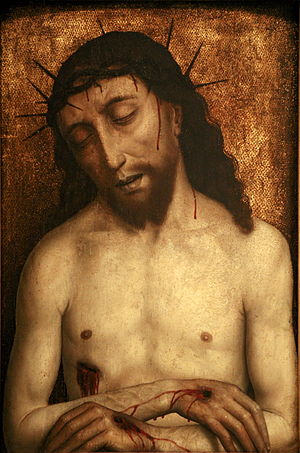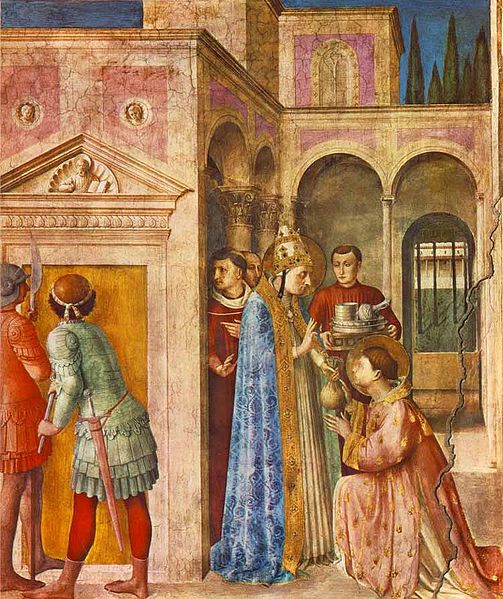The foxes have holes, and the birds of the air nests: but the s
Son of man hath not where to lay his head Matthew 8:20 DR
Socialism has nothing to do with being kind or helping the poor, or even understanding the plight of the poor.
It is about social engineering. It is about control. It is not about sanctity.
Power. It is about power.
Power. It is about power.
It is about empowering a government and taking away dignity and personal rights for people to earn money and make money in business, and keep it and use it as they so wish. It is about taking power away from the people
The Catholic Church is not a socialist institution.
When Christ said, "The poor you will always have with you", He was reminding us of our duty to share. This statement is in three Gospels. It is important. Matthew 26:11; Mark 14:7; John 12:8. The apostles thought this statement was important enough to include it in their Testaments from, perhaps, thousands of sayings of Christ. Christ is God. He chose poverty.
But emptied himself, taking the form of a servant, being made in the likeness of men, and in habit found as a man. Philippians 2:7, DR
He did not prophecy a classless society, or a society where all people have the same things.
I am not rich. I am poor. Now, God chooses to bless the rich. That is God's business. I am not God. I do not judge His wisdom and grace.
I do not judge myself. That He, is His wisdom and goodness has decided that I am poor, is also God's business.
So, why do people hate and suspect me of something? This is a mystery of poverty. That the poor are not favoured and the rich are is a truism one sees daily. I would rather be invisible than hated. People think,"She is not my kind of person. She cannot do what I can do. She is not in my social set." So be it.
Neither was Christ in the social set of His day. He was despised, rejected.
Neither was Christ in the social set of His day. He was despised, rejected.
Christ was hated to the point of murder.
Such is life. People are nice to the rich for their own reasons-perhaps for advancement, or status.
Perhaps for the perks. Some people are kind to the poor. I have met kind people. Some are really so, and some are out of guilt or duty, not the heart. Not many. Most judge.
But, for me, this is a learning experience. Do not judge the rich, either.
Do not judge either the rich or the poor. All that happens is God's Will.
St. Thomas More said that. I paraphrase. He was well-to-do and in a very short time, he and his family were impoverished by a viscous king.
St. Philip Howard spent long, long years in the Tower of London, impoverished.
His family had to flee to France.
Empress Zita ended up exiled almost for life from Austria. She was not a wealthy woman at the end of her life and relied on friends for help for herself and her children.
So,why are the poor judged?
Fear of failure, fear of loss of status, fear of illness-as the poor cannot afford health, fear of getting involved, fear of the unknown, fear of criticism.
My idea is that if I entertain a person poorer than myself, I am serving Christ Himself.
Kindness is the most important gift to the poor, who suffer from harsh criticisms daily.
Where some of the bishops have fallen away from consistent Catholic teaching on individual charity is that they have looked to institutions which are large to do the work we all should be doing.
The greatest pain for the poor is the lack of respect. Why money means respect is a mystery to me. I have never understood this principle of respecting a person less because they had less. The most generous and kind people I have ever met have been the poor-Maria, Denise, Anne, those who never quite made it into the middle class and never will.
Why is it that they have been generous?
They understand the need for love, real love, as the poor are hated and feared.
They are not esteemed. They are given less on their plate than are given to the rich. No one has to impress the poor.
St. Lawrence should be our example.
Ambrose relates (De officiis min. xxviii) that when St. Lawrence was asked for the treasures of the Churchhe brought forward the poor, among whom he had divided the treasure, in place of alms. Catholic Encyclopedia
An American middle class woman asked me why the Church has asked for preferential option for the poor in economics. She was angry. She did not understand that her life and that of the poor were connected. She did not understand her own freedom in choosing not to help the real poor.
The poor remind me of who I am before God. We are all poor in some way. Poverty reminds me of my spiritual state, which is pathetic in the eyes of God, Who is all Holiness. If I am poor in material things, it is a real projection of my spiritual state.
That is a good. If I am poor, that is the reality of my soul. I do not want to pretend. If I am poor inside, I want to be poor outside.
This is hard, very hard. One is judged by clothes, shoes, and the size of one's house. If one has no house, oh my goodness.
Christ had no where to lay His Head.
I would rather identify with Him on earth than any other person.
I want to become more and more like the Person I love.
St. Gemma Galgani is the patron saint of the poor and unemployed.
She was very poor. She is a saint.
From a website dedicated to her. These are her words in bold.
'We had nothing. The Court and the creditors took all. In the beginning we depended upon the charity of the good, but afterwards Guido got a position as chemist at the City Hospital.' Gemma, however, was not appalled by the poverty to which she and her family were reduced, because she considered poverty and the sorrows of life as precious gifts from God-as an ignored inheritance reserved by Him for the elect.
And these are her words.
"I wish, oh Jesus, that my voice could reach to the ends of the world, to call all sinners and tell them to enter into Thy Heart....Oh, if only all sinners would come to Thy Heart!... Come! Come sinners, do not be afraid! The sword of Justice cannot reach you Here!"
If you had a choice to say those words from the heart, while being poor and not having a clue what these words mean and be wealthy, what would you choose?
And some words to ponder from
The Compendium of the
Social Doctrine of the Church
Pontifical Council for Justice and Peace, 2005
“Solidarity without subsidiarity, in fact, can easily degenerate into
a ‘Welfare State’, while subsidiarity without solidarity runs the risk
of encouraging forms of self-centred localism. In order to respect
both of these fundamental principles, the State’s intervention in
the economic environment must be neither invasive nor absent,
but commensurate with society’s real needs (no. 351).
“...the universal destination of goods requires that the poor, the
marginalized and in all cases those whose living conditions interfere
with their proper growth should be the focus of particular concern.
To this end, the preferential option for the poor should be reaffirmed in all its force....
It affects the life of each Christian inasmuch as he or she seeks to imitate the life of Christ, but it
applies equally to our social responsibilities and hence to our manner of living…” (no. 182).
And what do the poor do for us? They challenge our idols. They show us our weaknesses. They remind us to be grateful. They represent Christ on the Cross. They demand our attention to not merely do good, but BE good.
No small vocation, that...............................




